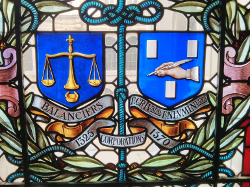There are no journalists
5- Jeff Jarvis, «Buzz Machine»
- 1.07.2013, 13:32
- 9,077

Journalists are not exist. There is only a service of journalism.
Yes, I know that in condensed form, that may sound like a parodic tweet. But please consider the idea.
Thanks to the Snowden-Greenwald NSA story, we are headed into another spate of debate about who is and isn’t a journalist. I’ve long said it’s the wrong question now that anyone can perform an act of journalism: a witness sharing news directly with the world; an expert explaining news without need of gatekeepers; a whistleblower opening up documents to sunlight; anyone informing everyone. It’s the wrong question when we reconsider journalism not as the manufacture of content but instead as a service whose goal is an informed public.
Why must we define a journalist? Times Public Editor Margaret Sullivan felt compelled to because the newspaper took it upon itself to decide who may wear the cloak, because of debates about Glenn Greenwald as an advocate, and because of questions of law. Her wise and compelling conclusion: “A real journalist is one who understands, at a cellular level, and doesn’t shy away from, the adversarial relationship between government and press – the very tension that America’s founders had in mind with the First Amendment.” Sadly, we don’t often see that definition of journalism played out from TV or the Beltway or especially the overlap of the two.
John McQuaid felt the need to ask why Greenwald is driving other journalists crazy. He concludes that asking who is (and isn’t) a journalist is often “a prelude to delegitimizing their work and what they have to say. It quickly devolves to tribalism.” Read: journalists v. bloggers. Sigh.
God help us, Dick Durbin felt empowered to propose that legislators should decide who is (and isn’t) a journalist, though in truth they already are when it comes to deciding who is protected by shield laws. But I certainly don’t want government licensing (or unlicensing) journalists.
All that discussion in just a few days. All that rehashing a question that has been asked and not answered — or answered all too often and in too many ways — for years. Enough.
Journalism is not content. It is not a noun. It need not be a profession or an industry. It is not the province of a guild. It is not a scarcity to be controlled. It no longer happens in newsrooms. It is no longer confined to narrative form.
So then what the hell is journalism?
It is a service. It is a service whose end, again, is an informed public. For my entrepreneurial journalism students, I give them a broad umbrella of a definition: Journalism helps communities organize their knowledge so they can better organize themselves.
Thus anything that reliably serves the end of an informed community is journalism. Anyone can help do that. The true journalist should want anyone to join the task. That, in the end, is why I wrote Public Parts: because I celebrate the value that rises from publicness, from the ability of anyone to share what he or she knows with everyone and the ethic that says sharing is a generous and social act and transparency should be the default for our institutions.
Is there a role for people to help in that process? Absolutely. I say that organizations can first help enable the flow and collection of information, which can now occur without them, by offering platforms for communities to share what they know. Next, I say that someone is often needed to add value to that process by:
- asking the questions that are not answered in the flow,
- verifying facts,
- debunking rumors,
- adding context, explanation, and background,
- providing functionality that enables sharing,
- organizing efforts to collaborate by communities, witnesses, experts.
So am I just rebuilding the job description of the journalist? I’m coming to see that perhaps we shouldn’t call it that, for it’s clear that the word “journalist” brings a few centuries’ baggage and a fight for who controls it. These functions — and others — need not come from one kind of person or organization.
Well but what about the legal question? Shouldn’t we at least have a definition of journalist so we know who is protected by a shield law? No. For that also defines others who are not protected. Those others are sometimes called whistleblowers and instead of protecting them, our government is at war with them and what they share: information, information about our government, information about us, information that will help us better organize ourselves as a free society.
No, we should be discussing this question — like others today — as a matter of principle: protecting not a person with a job description and a desk and a paycheck but instead protecting the ideals of a transparent government and an informed society as necessary conditions of democracy.
I’m speaking next week before the third World Journalism Education Congress. I was planning to ask them to challenge our industrial age assumptions about the relationships, forms, and business models of news and to reconsider what and how we teach journalism. I was also planning to suggest that if they call their programs “mass communication,” they should change that, since the title itself is an insult to the public we serve. For as Jay Rosen taught me long ago, sociologist Raymond Williams said: “There are in fact no masses; there are only ways to see people as masses.” No more.
Now I’m wondering whether we should discuss the idea that we’re not journalists. Even trying to define a journalist — to fence in the functions and value of the role to a particular job description — is limiting and ultimately defeats the greater purpose of informing society.
So what are we? We are servants of an informed society. We always have been.
Jeff Jarvis, «Buzz Machine»









